The Impact Of Weather On Pool Maintenance
Owning a pool is a luxurious addition to any home, offering endless enjoyment and relaxation. It's a perfect spot for family gatherings, pool parties, or simply unwinding after a long day. However, maintaining a pool presents a set of unique challenges, especially when the weather changes. Whether it's the biting cold of winter, the scorching heat of summer, or the unpredictable downpours of the rainy season, understanding the impact of weather on pool maintenance is crucial for every pool owner. This guide will delve into how various weather conditions affect your pool and provide practical tips to keep it in pristine condition year-round. From seasonal maintenance schedules to specific products that can help mitigate weather-related issues, we’ll cover everything you need to know to ensure your pool remains a sparkling oasis no matter the season.
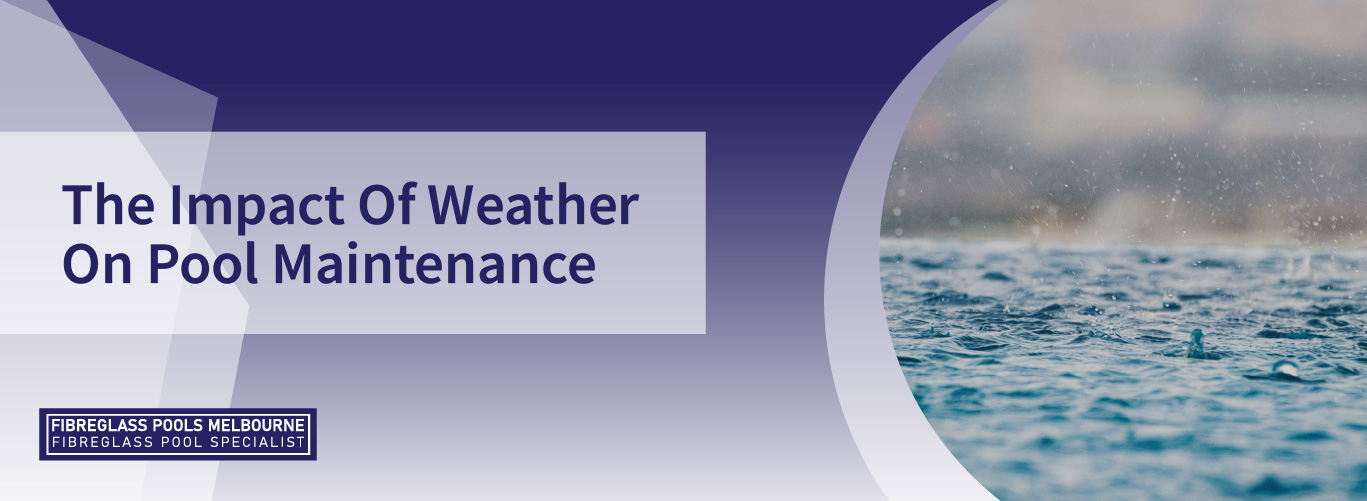
Understanding the Effects of Weather on Pool Maintenance
Winter: How Cold Temperatures Impact Pool Water Chemistry and Equipment
Winter poses a few challenges for pool owners, primarily due to the cold temperatures that can affect both water chemistry and pool equipment. As temperatures drop, so does the efficiency of the pool’s filtration system. Cold water can reduce the effectiveness of sanitising chemicals like chlorine, leading to potential algae growth and bacterial contamination.
Key Considerations:
- Water Chemistry: Low temperatures can alter the pH balance, making the water more acidic or basic. Regular testing and adjustment of pH levels are essential.
- Pool Equipment: Components such as pumps and filters may be at risk of freezing, which can cause damage. Ensuring these elements are properly winterised is crucial.
Summer: The Challenges of Excessive Heat and Sunlight on Pool Water Quality and Cleanliness
Summer is the peak season for pool use, but the excessive heat and sunlight bring their own set of challenges. High temperatures can accelerate the evaporation of water, leading to higher concentrations of dissolved solids and making it harder to maintain balanced water chemistry.
Key Considerations:
- Water Quality: UV rays from the sun can degrade chlorine, reducing its effectiveness. Frequent testing and adding stabilisers to protect chlorine are necessary.
- Cleanliness: Warm water is a breeding ground for algae and bacteria. Ensuring the pool is covered when not in use and regular cleaning can help maintain hygiene.
Rainy Season: The Effects of Heavy Rain on Pool Water Balance and the Importance of Proper Drainage
Heavy rain can significantly impact your pool’s water balance. Rainwater is generally acidic and can dilute the pool’s chemicals, disrupting the pH and chlorine levels. Additionally, improper drainage can lead to water overfilling and potential damage to the pool structure.
Key Considerations:
- Water Balance: After a heavy rainfall, it’s crucial to test and adjust the chemical levels to maintain a safe swimming environment.
- Drainage: Ensure that your pool area has a proper drainage system to prevent waterlogging and structural damage.
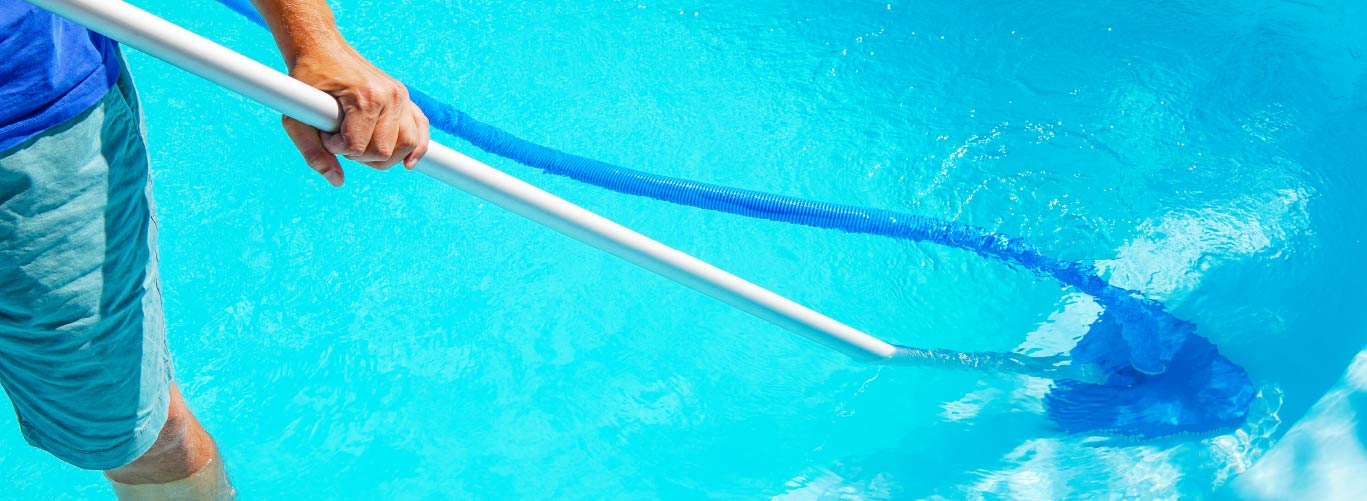
Practical Tips for Weather-Proofing Your Pool
Winterising Your Pool for Cold Weather
Winterising your pool involves a few steps to ensure it remains in good condition throughout the colder months:
- Lower the Water Level: Drain the pool water to below the skimmer level to prevent freezing and damage.
- Add Winter Chemicals: Use winterising chemicals, such as algaecides and shock treatments, to keep the water clean.
- Cover the Pool: Invest in a high-quality pool cover to protect against debris and freezing temperatures.
Protecting Your Pool from Summer Heat and UV Damage
To keep your pool in top shape during the summer:
- Regularly Test Water: Frequent testing and balancing of chemicals are essential to counteract the effects of heat and sunlight.
- Use Pool Covers: When not in use, cover the pool to reduce evaporation and prevent debris from entering.
- Maintain Filtration System: Ensure that the filtration system is running efficiently to handle the increased usage and potential for algae growth.
Rainy Season Preparations to Prevent Overfilling and Maintain Water Balance
During the rainy season, take these steps to protect your pool:
- Monitor Water Levels: Regularly check the water level and adjust as needed to prevent overfilling.
- Maintain Proper Drainage: Ensure that the drainage system is clear and functioning correctly to avoid waterlogging.
- Adjust Chemicals: Test the water after heavy rains and adjust the chemical levels to maintain balance.
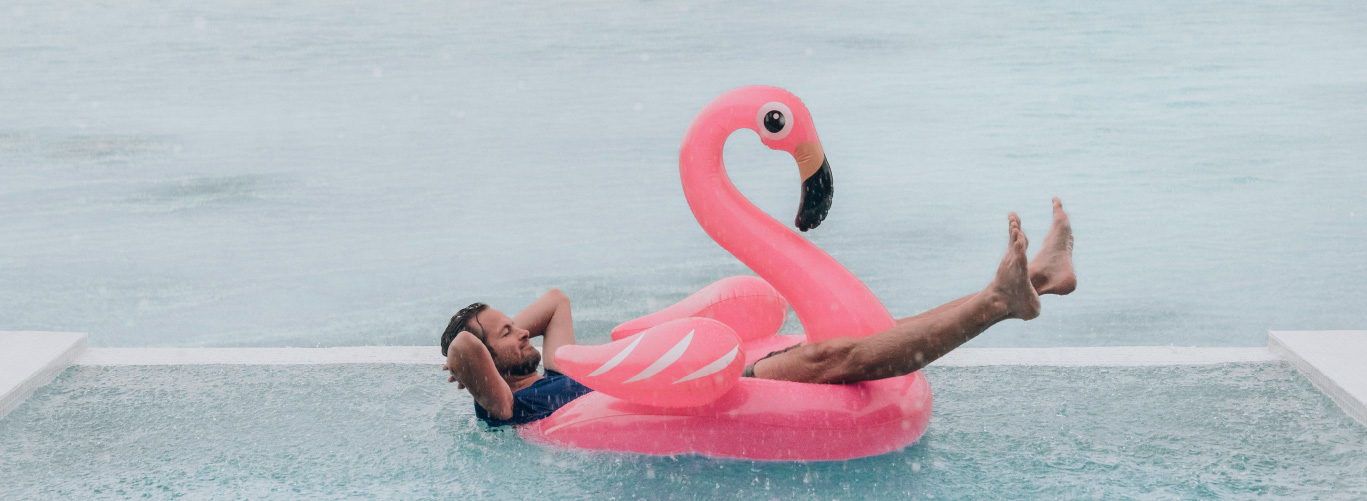
The Role of Professional Pool Maintenance Services
While DIY maintenance can go a long way in keeping your pool in good condition, there are times when professional help is invaluable. Professional pool maintenance services offer several benefits that can save you time, effort, and potentially costly repairs in the long run. These experts not only ensure that your pool water is balanced and safe but also handle complex tasks like filter cleaning, pump inspections, and leak detection. By enlisting professional services, you can enjoy a pristine pool with the peace of mind that comes from knowing it’s being properly cared for.
- Expertise and Knowledge: Trained professionals can quickly identify and address issues that may not be apparent to the average pool owner.
- Regular Maintenance: Scheduled maintenance ensures that the pool is always in optimal condition, regardless of weather changes.
- Advanced Equipment: Professionals have access to advanced tools and equipment that can provide deeper cleaning and more thorough maintenance.
Conclusion
Weather conditions can significantly impact pool maintenance, making it essential for pool owners to stay vigilant and proactive. For instance, heavy rains can dilute pool chemicals, storms can introduce debris, and extreme temperatures can affect water balance. By understanding how different weather patterns affect your pool and implementing the practical tips outlined in this guide, such as maintaining proper chemical levels and covering the pool during adverse conditions, you can ensure your pool remains a safe and enjoyable oasis year-round.
Remember, while DIY efforts are crucial, don’t hesitate to seek professional assistance when needed. Experts can provide services like detailed water testing, equipment inspection, and repairs that may be beyond the scope of regular maintenance. By combining regular upkeep with professional help, you’ll protect your investment and enjoy your pool for many years to come, creating lasting memories with family and friends.
The Impact Of Weather On Pool Maintenance
Owning a pool is a luxurious addition to any home, offering endless enjoyment and relaxation. It's a perfect spot for family gatherings, pool parties, or simply unwinding after a long day. However, maintaining a pool presents a set of unique challenges, especially when the weather changes. Whether it's the biting cold of winter, the scorching heat of summer, or the unpredictable downpours of the rainy season, understanding the impact of weather on pool maintenance is crucial for every pool owner. This guide will delve into how various weather conditions affect your pool and provide practical tips to keep it in pristine condition year-round. From seasonal maintenance schedules to specific products that can help mitigate weather-related issues, we’ll cover everything you need to know to ensure your pool remains a sparkling oasis no matter the season.
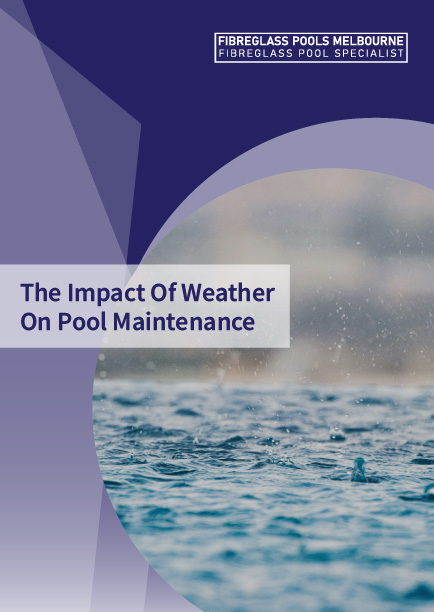
Understanding the Effects of Weather on Pool Maintenance
Winter: How Cold Temperatures Impact Pool Water Chemistry and Equipment
Winter poses a few challenges for pool owners, primarily due to the cold temperatures that can affect both water chemistry and pool equipment. As temperatures drop, so does the efficiency of the pool’s filtration system. Cold water can reduce the effectiveness of sanitising chemicals like chlorine, leading to potential algae growth and bacterial contamination.
Key Considerations:
- Water Chemistry: Low temperatures can alter the pH balance, making the water more acidic or basic. Regular testing and adjustment of pH levels are essential.
- Pool Equipment: Components such as pumps and filters may be at risk of freezing, which can cause damage. Ensuring these elements are properly winterised is crucial.
Summer: The Challenges of Excessive Heat and Sunlight on Pool Water Quality and Cleanliness
Summer is the peak season for pool use, but the excessive heat and sunlight bring their own set of challenges. High temperatures can accelerate the evaporation of water, leading to higher concentrations of dissolved solids and making it harder to maintain balanced water chemistry.
Key Considerations:
- Water Quality: UV rays from the sun can degrade chlorine, reducing its effectiveness. Frequent testing and adding stabilisers to protect chlorine are necessary.
- Cleanliness: Warm water is a breeding ground for algae and bacteria. Ensuring the pool is covered when not in use and regular cleaning can help maintain hygiene.
Rainy Season: The Effects of Heavy Rain on Pool Water Balance and the Importance of Proper Drainage
Heavy rain can significantly impact your pool’s water balance. Rainwater is generally acidic and can dilute the pool’s chemicals, disrupting the pH and chlorine levels. Additionally, improper drainage can lead to water overfilling and potential damage to the pool structure.
Key Considerations:
- Water Balance: After a heavy rainfall, it’s crucial to test and adjust the chemical levels to maintain a safe swimming environment.
- Drainage: Ensure that your pool area has a proper drainage system to prevent waterlogging and structural damage.
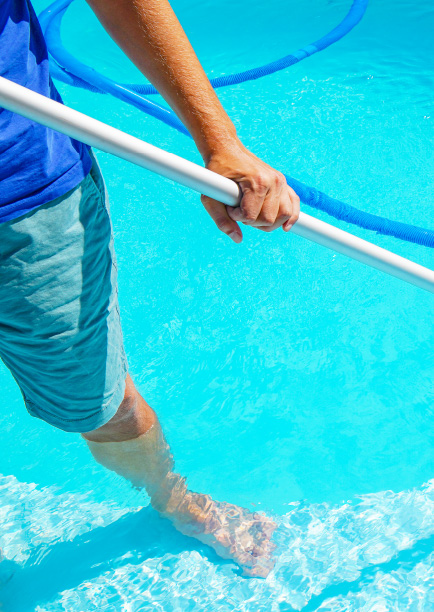
Practical Tips for Weather-Proofing Your Pool
Winterising Your Pool for Cold Weather
Winterising your pool involves a few steps to ensure it remains in good condition throughout the colder months:
- Lower the Water Level: Drain the pool water to below the skimmer level to prevent freezing and damage.
- Add Winter Chemicals: Use winterising chemicals, such as algaecides and shock treatments, to keep the water clean.
- Cover the Pool: Invest in a high-quality pool cover to protect against debris and freezing temperatures.
Protecting Your Pool from Summer Heat and UV Damage
To keep your pool in top shape during the summer:
- Regularly Test Water: Frequent testing and balancing of chemicals are essential to counteract the effects of heat and sunlight.
- Use Pool Covers: When not in use, cover the pool to reduce evaporation and prevent debris from entering.
- Maintain Filtration System: Ensure that the filtration system is running efficiently to handle the increased usage and potential for algae growth.
Rainy Season Preparations to Prevent Overfilling and Maintain Water Balance
During the rainy season, take these steps to protect your pool:
- Monitor Water Levels: Regularly check the water level and adjust as needed to prevent overfilling.
- Maintain Proper Drainage: Ensure that the drainage system is clear and functioning correctly to avoid waterlogging.
- Adjust Chemicals: Test the water after heavy rains and adjust the chemical levels to maintain balance.

The Role of Professional Pool Maintenance Services
While DIY maintenance can go a long way in keeping your pool in good condition, there are times when professional help is invaluable. Professional pool maintenance services offer several benefits that can save you time, effort, and potentially costly repairs in the long run. These experts not only ensure that your pool water is balanced and safe but also handle complex tasks like filter cleaning, pump inspections, and leak detection. By enlisting professional services, you can enjoy a pristine pool with the peace of mind that comes from knowing it’s being properly cared for.
- Expertise and Knowledge: Trained professionals can quickly identify and address issues that may not be apparent to the average pool owner.
- Regular Maintenance: Scheduled maintenance ensures that the pool is always in optimal condition, regardless of weather changes.
- Advanced Equipment: Professionals have access to advanced tools and equipment that can provide deeper cleaning and more thorough maintenance.
Conclusion
Weather conditions can significantly impact pool maintenance, making it essential for pool owners to stay vigilant and proactive. For instance, heavy rains can dilute pool chemicals, storms can introduce debris, and extreme temperatures can affect water balance. By understanding how different weather patterns affect your pool and implementing the practical tips outlined in this guide, such as maintaining proper chemical levels and covering the pool during adverse conditions, you can ensure your pool remains a safe and enjoyable oasis year-round.
Remember, while DIY efforts are crucial, don’t hesitate to seek professional assistance when needed. Experts can provide services like detailed water testing, equipment inspection, and repairs that may be beyond the scope of regular maintenance. By combining regular upkeep with professional help, you’ll protect your investment and enjoy your pool for many years to come, creating lasting memories with family and friends.


